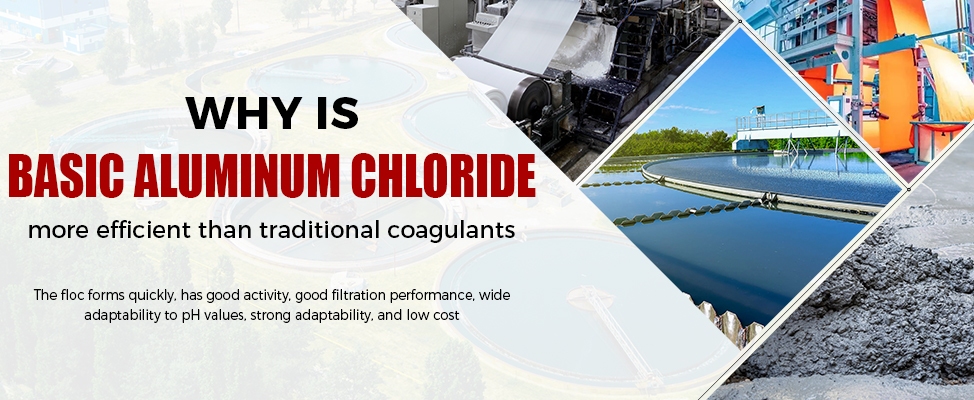As a Chinese manufacturer with 28 years of experience in water treatment chemicals, we supply BAC, PAC, PAM, calcium chloride, ferric salts, and other coagulants to customers worldwide.
Many ask us: “Why does BAC perform better than traditional coagulants?”
Here is a clear and practical explanation based on real industrial applications.

BAC is a high-polymerization, high-basicity inorganic polymer coagulant composed of:
[Al₂(OH)nCl₆−n]m polymerized aluminum complexes
Al₂O₃ content: 30% ± 2
Basicity: 40–85%
Its multi-core polymerized aluminum structure ensures stronger adsorption and faster floc formation.
| Traditional Coagulant | Chemical Formula | Limitations |
|---|---|---|
| Alum (Al₂(SO₄)₃) | Aluminum sulfate | High dosage, slow floc formation, narrow pH range |
| Ferric Chloride (FeCl₃) | Iron chloride | Causes yellow color, strong corrosion |
| Poly Ferric Sulfate (PFS) | Polymerized ferric sulfate | Produces large sludge volume |
| Aluminum Chloride (AlCl₃) | Aluminum chloride | Low basicity, requires high dosage |
Compared to these single-ion coagulants:⭐ BAC offers higher polymerization and stronger adsorption capability.
| Item | BAC | Traditional Coagulants |
|---|---|---|
| Structure | Polymerized aluminum clusters | Single metal ions |
| Dosage | 20–40% lower | Higher |
| Floc formation | Fast and dense | Slow |
| Sludge volume | 20–30% less | Large |
| pH tolerance | Wide (5–9) | Narrow |
| Water color | Clear | Yellowish |
| Corrosion | Low | High |
1. Strong adsorption & bridging capability
2. Lower dosage, reduced cost
3. Faster settling & clearer effluent
4. Minimal impact on pH
5. Reduced sludge volume
Packaging: 25kg bags/1000kg Ton bags
Storage: Keep dry, avoid moisture, keep away from acids/alkalis, avoid sunlight for liquid BAC.
Application Notes
✔ Prepare 5–10% solution
✔ Do not mix BAC and ferric salts at the same dosing point
✔ Best pH: 6–8
✔ Conduct jar tests
Q1. Is BAC more efficient than PAC?
A1 : Yes, especially in high-turbidity or industrial wastewater.
Q2. Can BAC be used for drinking water?
A2 : Yes, if compliant with local regulations.
Q3. Recommended dosage?
A3 : 30–200 mg/L depending on water quality.
Q4. Corrosiveness?
A4 : BAC is far less corrosive than iron salts and is friendly to metal pipes.
Q5. Can BAC be combined with PAM?
A5 : Yes—BAC + anionic PAM is highly effective.
How to store water treatment products correctly?
The difference between PAC, AC, and ALU
How to choose the right coagulant and improve water treatment efficiency?

Please contact us for free quotation by form below. We promise the quickest response within 24 hours: